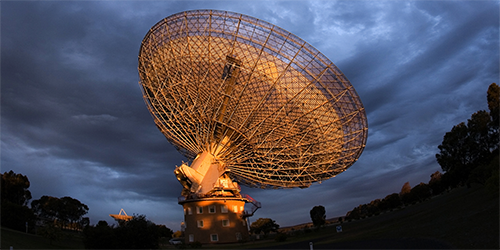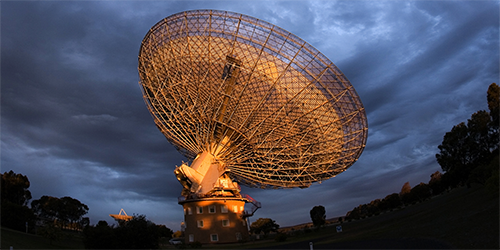Homing in on Primordial Gravitational Waves
Gravitational waves—the distortions in spacetime first spotted by the LIGO Scientific Collaboration in September 2015—are fundamentally distinct from electromagnetic waves. But like their electromagnetic counterparts, they can come in a broad range of frequencies. Different experiments to detect them target specific frequency bands, each of which links to particular wave sources, such as the two colliding black holes that generated the signal detected by LIGO. In a study that combines data across an unprecedented swath of gravitational-wave frequencies, Paul Lasky from Monash University, Australia, and colleagues now put stringent bounds on a source that should produce a signal in all experiments: quantum fluctuations in the early cosmos.
Researchers believe that a fraction of a second after the big bang, quantum fluctuations of the gravitational field were magnified by a rapid expansion of space called inflation, generating a primordial background of gravitational waves. Lasky and co-workers pulled together data from several experiments that should carry direct or indirect imprints of this background. Spanning 29 orders of magnitude in gravitational-wave frequency, these data included observations of the cosmic microwave background radiation obtained by the Planck satellite and the BICEP2 experiment, of the arrival times of pulses from rotating neutron stars, and of mirror displacements in ground-based interferometers such as LIGO. The combined data allowed the authors to put stringent bounds on the slope of the background’s energy spectrum, which quantifies how the energy density of the waves varies with frequency. From these bounds, they were able to rule out exotic models of inflation that produce large slopes.
This research is published in Physical Review X.
–Ana Lopes





